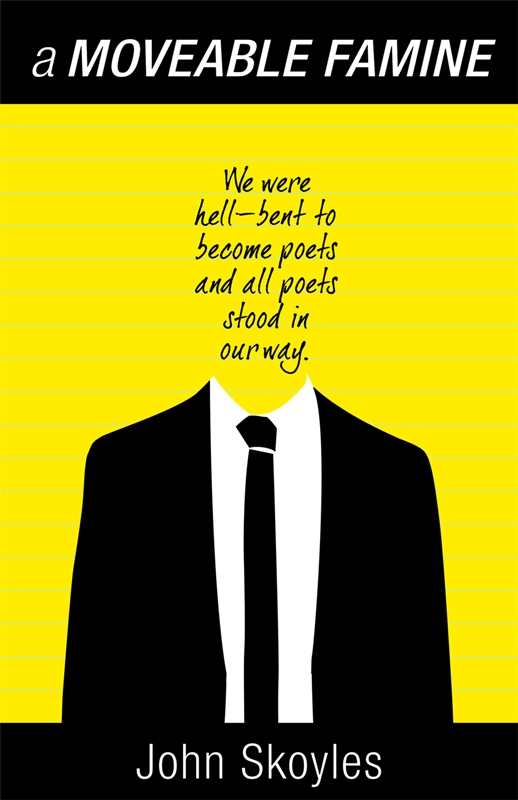
A Moveable Famine
- 2014 INDIES Finalist
- Finalist, Literary (Adult Fiction)
Skoyles presents a sharp snapshot of an era while employing thoughtful themes of self-doubt and the search for mentorship.
Poet John Skoyles’s autobiographical novel, A Moveable Famine, reveals his coming of age as a writer, from his days at the Iowa Writer’s Workshop to his fellowships at the Fine Arts Work Center in Provincetown and at the Yaddo mansion in Saratoga Springs. Brushes with literary icons, including Allen Ginsberg and Raymond Carver, seamy anecdotes from the early 1970s and ’80s, and everyday collegiality and rivalry merge to create an episodic tale of ambition. Through the stories of real and composite characters, poetry, which Skoyles once felt “was invisible,” becomes a viable art.
As graduate students in awe of multiple talents, Skoyles and his companions encountered plenty of hijinks. The author recounts the infidelities of a professor, meetings with women who moonlighted as amateur strippers, outings at the neighborhood bar, surprising readings given by visiting writers, and the comedy found at the Iowa poetry workshop. Amid the competitive nature of the program, the band of aspiring poets began finding a measure of success.
The most poignant thread involves Skoyles’s Iowa professor, poet Mitch Lawson, a formalist with a slim output whose intimidating demeanor belied a complex figure. Skoyles’s time as Lawson’s research assistant reveals his own growth as a writer who shed his New York influences to forge his own style. His transformation from a beginner who learned “by stumbling” to a writer whose work was published in journals is presented as a series of gradual shifts.
Chapters set in Provincetown take a leisurely, slice-of-life approach. Skoyles emphasizes social gatherings rife with non sequiturs, along with sexual misadventures. Scenes with writers such as Alan Dugan, Gregory Corso, and Robert Creeley underscore the work center’s high-spirited environment. Stanley Kunitz in particular emerges as a well-drawn guide given to making wise remarks, including the advice that the ending of a poem “should be a door and a window” and that poets should “live in the layers / not on the litter.”
The book’s focus on the inner sanctum of a masters-in-fine-arts program and on the wilder side of elite residencies may seem narrow, but Skoyles seldom preaches to the choir. With a narrator who is seemingly shepherded along by luck, A Moveable Famine offers a gently satirical take on a world marked by eccentricity.
Reviewed by
Karen Rigby
Disclosure: This article is not an endorsement, but a review. The publisher of this book provided free copies of the book to have their book reviewed by a professional reviewer. No fee was paid by the publisher for this review. Foreword Reviews only recommends books that we love. Foreword Magazine, Inc. is disclosing this in accordance with the Federal Trade Commission’s 16 CFR, Part 255.
